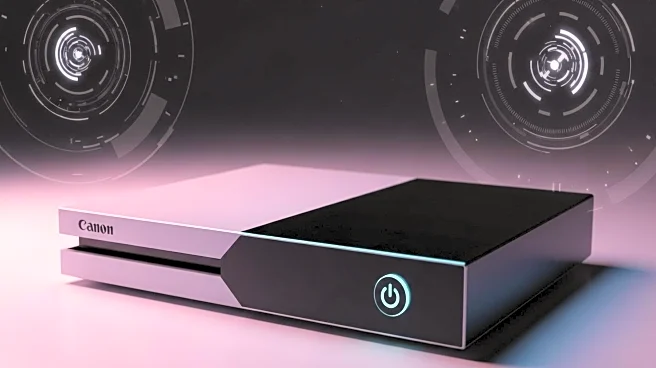What's Happening?
Nintendo's Switch 2 has been criticized for its slow loading speeds when using physical Game Cards. The issue arises from the decision to use a format that streams data more slowly than downloaded games on the same console. This has led to longer loading times for games like Mario Kart World. Developers have noted the discrepancy, with CD Projekt Red's VP of Technology highlighting the slower data transfer speeds compared to other storage options. The Switch 2's internal storage and MicroSD Express cards offer faster speeds, but the Game Card interface remains a bottleneck. Nintendo could potentially allow pre-installation of games from Game Cards to internal storage, similar to practices by Microsoft and Sony, but this might be inconvenient for users with limited storage.
Why It's Important?
The loading speed issue with Switch 2 Game Cards could impact user experience and developer support for physical media. As the gaming industry shifts towards digital downloads, the slower speeds may deter developers from optimizing games for physical Game Cards. This could lead to a decline in physical game sales, affecting retailers and consumers who prefer tangible media. Additionally, the issue highlights the ongoing challenge of balancing cost and performance in gaming hardware, which could influence future console designs and consumer expectations.
What's Next?
Nintendo may need to address the loading speed issue to maintain consumer satisfaction and developer support. Possible solutions include allowing pre-installation of games from Game Cards or improving the Game Card interface in future hardware updates. Developers might adapt to the slower speeds, but the industry trend towards digital media could accelerate, reducing the focus on physical Game Cards. Nintendo's response to this issue will be crucial in shaping the future of its console strategy.
Beyond the Headlines
The Switch 2's loading speed issue raises questions about the sustainability of physical media in gaming. As digital downloads become more prevalent, the environmental impact of producing physical Game Cards could be scrutinized. Additionally, the shift towards digital media may affect consumer rights related to game ownership and resale. These broader implications could influence industry standards and consumer behavior in the long term.









